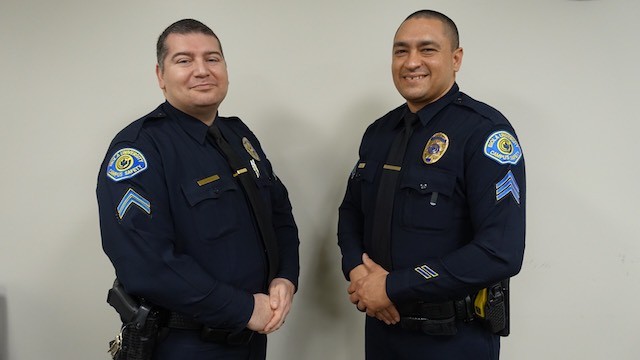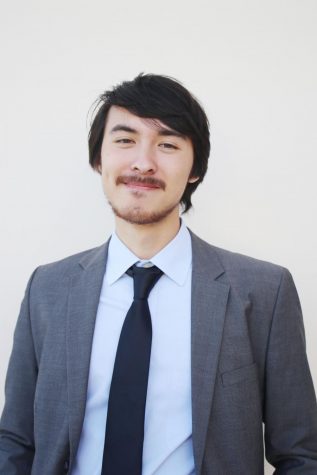Campus Safety is partnering with the Student Health Center to train two officers as emergency medical technicians who will begin full operations fall 2018.
RESTORING A EMERGENCY OPERATION
Previously, the Student Health Center kept a full-time EMT on staff. However, in the 2014-15 fiscal year, the program, which cost approximately $51,000 a year, discontinued due to budget cuts. Campus Safety now plans to bring the program back, training two officers as EMTs who can respond to incidents including sports injuries and natural disasters. If an incident calls for external medical services, the EMTs will manage the situation until paramedics arrive.
“Our job has always been to be the first responders in medical calls in conjunction with the Health Center. I felt this EMT training is just adding an additional layer of training and support to the community when it comes to both many types of medical calls we respond to and if there’s any major emergencies when it comes to trauma,” said Sergeant Jose Alvarez, one of the officers who attends intensive EMT training for approximately 35 hours a week, learning how to respond to trauma and medical emergencies.
The new EMT program will cost substantially less money than the prior program, which addressed approximately 100 medical calls, according to Chief John Ojeisekhoba of Campus Safety. The officers have accepted small increases in their salaries for adopting EMT duties in addition to their normal Campus Safety duties, costing a total of $4,000 a year for a combined 80 hours of service a week.
“[I’m most excited for] the additional level of services that will be on the ready to provide to students and employees,” Ojeisekhoba said.
Alvarez, who has prior CPR and first aid training, believes the role will not present a significant challenge in addition to his usual duties.
“I feel like it’s just an additional layer of responsibility. I don’t believe it’s going to be any different from how I prepare myself right now, already. I have my family’s support in my job, healthy balance between work, a family life, social life—including the church and those who support me,” Alvarez said.
EMT PROGRAM ANTICIPATED
Ojeisekhoba also hopes that these two officers will demonstrate the viability of the new program. He wants to eventually gain additional EMTs so that Campus Safety will have an EMT on duty for most hours of the week.
“These two officers will serve as the pilot system. In the fall, we will reassess,” Ojeisekhoba said. “The goal is to expand the program. Say I get two more officers. That will be 8,000 dollars [total] per year, and [we] will have 160 hours, compared to 40 hours at 52 thousand dollars.”
Intramural coordinator and sophomore mathematics major McKenna Dorman does not see many injuries on the field. In most cases, injuries do not warrant contacting Campus Safety to aid the student. Nonetheless, she believes the EMT program will provide an important service to the community.
“I think it would be helpful, because we haven’t experienced any major injuries yet, but I think if that were to happen it’d be super helpful to have somebody on campus who’s trained in that,” Dorman said.








